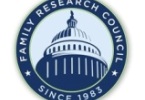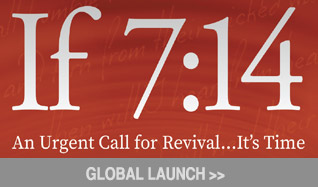State Religious Freedom Restoration Acts (“RFRAs”):
What are they and why are they needed?
By Travis Weber, Esq.
Director, Center for Religious Liberty
Family Research Council
March 2015
What is a “RFRA”?
Religious Freedom Restoration Act (RFRA) refers to a state law that mirrors the federal statute by the same name and which prohibits the government from burdening religious exercise unless it meets a high level of legal scrutiny. Chuck Schumer, Ted Kennedy, and then-State Senator Barack Obama are just a few examples of politicians who have voted for a RFRA at the state or federal level.
Where did the federal RFRA come from?
Many correctly saw the Supreme Court’s 1990 decision in Employment Division v. Smith[1] as an erosion of religious liberty rights and threat to our freedom to live out our personal beliefs. In response to Smith, a coalition of groups from across the religious, political, and legal spectrum—from the Southern Baptists to the ACLU—came together to urge Congress to pass a law restoring strong protections for free exercise claims. The 1993 federal RFRA was sponsored by Chuck Schumer and Ted Kennedy, was passed unanimously by the House and 97-3 by the Senate, and signed President Clinton.
So why are state RFRAs needed today?
In 1997 the Supreme Court ruled in City of Boerne v. Flores[2] that the federal RFRA did not apply to state and local government action. Since then, state RFRAs have been needed to protect against undue state and local government interference in religious exercise. Twenty states have responded as of this writing,[3] and another 11 states have similar protections under state court precedent. The law is needed in the remaining states to protect people whose sincere beliefs are in danger of being unnecessarily burdened by the government.
What do RFRAs actually do?
They give courts a tried-and-true balancing test for weighing a person’s sincerely held religious beliefs against legitimate state interests; RFRAs do not dictate outcomes.
The language can vary from state to state, depending on the laws already in place, but all RFRAs protect people with sincerely-held religious beliefs from over-intrusive government regulation burdening their religious practice, while winnowing out those using religion as a pretext to escape application of general laws.
How does the RFRA balancing test work?
RFRAs allow a person to ask a court to consider their religious beliefs as a basis for their claim or defense in a judicial proceeding. The standard RFRA contains a five-part test.
To claim RFRA protection, a person first has to prove they have:
(1) A religious belief, and
(2) Which is also sincere, and
(3) Which has been substantially burdened by the government action in question.
Only then can their claim move forward. At this stage, the burden of proof shifts to the government to show that:
(1) It has a compelling interest in burdening the religious practice, and
(2) It has only burdened the practice in the least restrictive way possible.
If the government can make both of these showings, its law or regulation is allowed to infringe on the religious practice—even under RFRA. However, if the government fails to make both of these showings, the religious claim will prevail, and at that point the person is entitled to legal protection for their religious beliefs and practices. Just because a RFRA claim is brought does not mean that it will win in every case. A person must always look to a court’s application of RFRA—the law provides a balancing test in court but does not dictate the outcome.
Who does RFRA protect? (Hint: Everyone.)
Everyone with a conscience—regardless of their religion, political views, the content of their beliefs, or how they apply those beliefs—is protected by a RFRA.
That’s why, when the federal RFRA was passed in 1993, a coalition of groups from across the religious, political, and legal spectrum—from the Southern Baptists to the ACLU—came together to support it. A review of RFRA and free exercise case law going back decades clearly shows its benefit to people of all faiths as they seek to protect their beliefs and consciences in the face of ever more intrusive government. For example, this religious liberty framework has been appealed by Native Americans seeking to grow long hair in school, Christians seeking to feed the homeless in the face of a hostile local government zoning laws, and even Muslim prisoners seeking to grow a short beard.
Moreover, these laws are not political—they cut across racial and social lines, and apply in a variety of factual scenarios, from property disputes to social welfare to abortion. RFRAs are not fact-specific. They are not race-specific. They are not religion-specific. And they are not political party-specific.
You’d expect RFRAs to find support from a spectrum of Americans of all political persuasions and religions who care about individual freedom from government coercion. RFRAs’ text and history, along with our judicial system’s established practices for analyzing religious claims, demonstrate that these laws merely advance conscience rights for all in the face of ever larger and more intrusive government—nothing more, and nothing less. That’s something all Americans can support.
But aren’t RFRAs just an excuse to discriminate or hide behind my religious beliefs?
No. RFRAs do not allow businesses to turn away customers or engage in discrimination as they see fit. Opponents of state RFRAs raise all kinds of hyperbolic hypotheticals, but when asked for examples of where a RFRA has been abused in this way they cannot cite a single example. Indeed, many religious objectors themselves debunk the “license to discriminate” narrative and demonstrate they are not discriminating through their own history of serving all people.
Only a judge can apply a RFRA’s balancing test. In no cases do RFRAs allow people to automatically appeal to religion to “opt out” of obeying a law. RFRAs do protect people of all faiths whose sincere beliefs are in danger of being unnecessarily burdened by the government, while winnowing out those using religion as a pretext to escape application of general laws.
Americans of all political persuasions and all religions who care about individual freedom of belief in the face of increasing government coercion should support RFRAs. The law’s text and our long history of analyzing religious claims show that RFRAs are the best protection for everyone, allowing people of all beliefs to continue living free of intrusive government.
Travis S. Weber is the Director of the Center for Religious Liberty at the Family Research Council, where he focuses on all manner of legal and policy issues pertaining to religious freedom. Before joining FRC, Travis worked in private practice, primarily litigating federal civil rights cases. He also handled military-related legal issues and criminal defense matters. Travis is a graduate of the U.S. Naval Academy and holds a J.D. from Regent University School of Law, where he served as the Notes & Comments Editor on Law Review. Travis also graduated with an LL.M. in International Law (with distinction) and a Certificate in International Human Rights Law from Georgetown University Law Center.
[1] 494 U.S. 872 (1990). In Smith the Supreme Court held that government regulation infringing on religious exercise did not violate the First Amendment’s Free Exercise Clause as long as it was neutral and generally applicable.
[2] 521 U.S. 507 (1997).
[3] Twenty states have RFRAs: Alabama, Arizona, Connecticut, Florida, Idaho, Indiana, Illinois, Kansas, Kentucky, Louisiana, Mississippi, Missouri, New Mexico, Oklahoma, Pennsylvania, Rhode Island, South Carolina, Tennessee, Texas, and Virginia.



